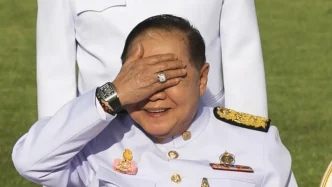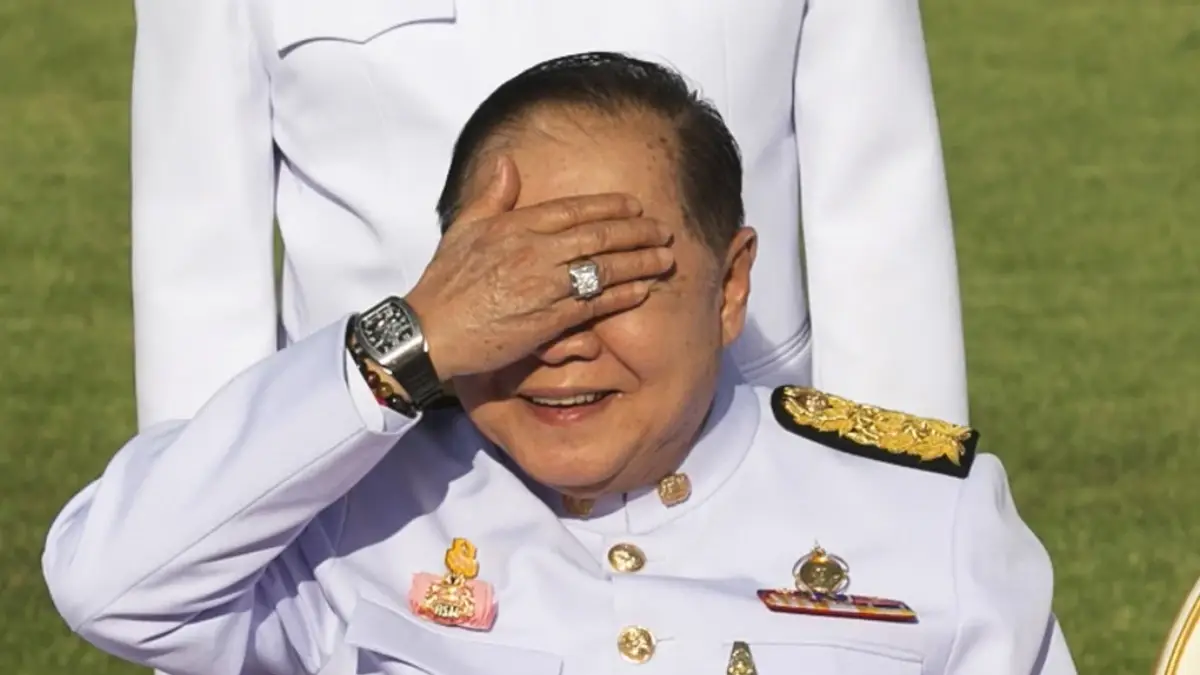Thailand’s government under Prime Minister Paetongtarn Shinawatra has come under sharp scrutiny for its perceived inability to address corruption, with critics pointing to a lack of clear direction and effective mechanisms. One year into her administration, the Anti-Corruption Organisation of Thailand (ACT) has issued a damning assessment, arguing that the government has failed to inspire public confidence in its policies and initiatives to tackle graft, a persistent issue that continues to undermine trust in the nation’s institutions.
A Year of Discontent
The ACT, a prominent anti-graft watchdog, has accused the Paetongtarn administration of lacking both commitment and actionable strategies to combat corruption. Mana Nimitmongkol, the organization’s president, has publicly highlighted the government’s shortcomings, stating that numerous high-profile initiatives—ranging from legalizing casinos to a 10,000-baht (~US$280) digital cash handout and a 157-billion-baht (~US$4.4 billion) economic stimulus plan—are widely seen as political maneuvers rather than genuine reforms. Writing on social media, Mr. Mana emphasized that public mistrust is deeply rooted in Thailand’s longstanding struggles with corruption and the administration’s apparent inability to confront the issue head-on.
Among the key criticisms is the absence of a concrete anti-corruption policy. Despite the government’s stated ambition to improve Thailand’s score on the Corruption Perceptions Index (CPI)—an annual ranking by Transparency International—from its current 34 to at least 57, no tangible steps have been outlined to achieve this goal. This lack of clarity has fueled skepticism about the administration’s sincerity, with many questioning whether such targets are mere rhetoric.
Weakened Mechanisms and Public Sentiment
Further compounding public disillusionment is the perceived erosion of state anti-corruption mechanisms over the past two years. According to Mr. Mana, bodies like the Anti-Corruption Operation Centre have been discontinued under the current administration, leaving a void in oversight and accountability. He also criticized the government’s tendency to respond to crises with superficial measures—such as ordering agencies to pinpoint culprits—rather than conducting transparent investigations to address systemic issues. One cited example is the collapse of a State Audit Office (SAO) building during an earthquake on March 28, where little progress has been made in identifying or addressing the root causes of the incident.
Public sentiment toward the government has soured as a result of these failures. The ACT argues that the administration’s inaction on bureaucratic and legal reforms, which were promised as tools to combat graft, has only deepened public frustration. Mr. Mana noted that even recommendations from the National Anti-Corruption Commission (NACC) on recurring issues—such as fraud in school milk programs, irregularities in hospital drug procurement, and bribery in highway projects—have been largely ignored. This inaction, he suggested, has left bureaucrats idle, uncertain of the government’s priorities in tackling corruption.
Thailand’s Standing on the Global Stage
Thailand’s struggle with corruption is not a new phenomenon, but recent data underscores the scale of the challenge. In 2024, the country’s CPI score slipped to 34 from 35 the previous year, though its global ranking improved slightly to 107th out of 180 countries, according to Transparency International. Within the ASEAN region, Thailand ranks fifth, trailing far behind Singapore, which scored 84 and is consistently among the world’s least corrupt nations. At the other end of the spectrum, Myanmar languishes at 168th with a score of just 16. Thailand’s best CPI performance in the past decade was a score of 38 in 2015, a far cry from the current administration’s ambitious target of 57.
Rankings aside, the fluctuations in Thailand’s position often depend on the performance of other nations rather than significant domestic improvements. For instance, in 2022, Thailand’s ranking jumped nine places to 101st despite its score rising by just one point to 36. The following year, the score dropped to 35, and the ranking fell to 108th. This volatility highlights the need for consistent, structural reforms rather than temporary gains influenced by external factors.
Calls for Action and Transparency
In response to these challenges, the ACT has put forward several recommendations to address systemic corruption. Among them is a nationwide audit of abandoned and incomplete state-funded buildings, with the organization warning that inaction could result in losses exceeding 100 billion baht (~US$2.8 billion). Mr. Mana has also urged the administration to prioritize open government practices and elevate anti-corruption efforts to a national agenda item. He stressed that without visible leadership from the top, efforts to curb graft will remain ineffective, leaving honest individuals at a disadvantage in a system that often rewards wrongdoing.
To galvanize public engagement, the ACT plans to host Anti-Corruption Day 2025 on September 6, encouraging online participation to design a framework where integrity is rewarded, and corruption has no place. The initiative aims to foster a broader societal shift, recognizing that government action alone is insufficient without public support and accountability.
Broader Implications for Governance
The criticism of the Paetongtarn administration raises broader questions about governance in Thailand, a country with a complex history of political instability and systemic corruption. Successive governments have grappled with similar accusations of inaction or complicity, and the current administration’s struggles are, in some ways, a continuation of longstanding challenges. However, the ACT’s pointed critique suggests that public patience may be wearing thin, particularly as economic initiatives are overshadowed by perceptions of political expediency.
Thailand’s anti-corruption efforts—or lack thereof—also have implications beyond its borders. As a key player in ASEAN, the country’s governance standards influence regional perceptions of stability and economic reliability. With Singapore setting a high benchmark for transparency in the region, Thailand risks falling further behind if it cannot demonstrate meaningful progress. Investors and international partners often look to CPI scores and similar metrics as indicators of risk, and a persistently low ranking could deter foreign investment at a time when the government is pushing ambitious economic stimulus plans.
Historical Context and Political Dynamics
Corruption has long been a thorn in Thailand’s side, intertwined with its political landscape. The country has seen numerous administrations pledge to tackle graft, often with limited success. The Shinawatra family, to which Paetongtarn belongs, has itself been a polarizing force in Thai politics, with past governments led by family members facing both praise for populist policies and criticism over alleged corruption and abuse of power. While Paetongtarn’s administration is distinct from those of her predecessors, the historical baggage of her family’s political legacy may contribute to public skepticism about her commitment to reform.
Moreover, the interplay between military influence, bureaucratic inertia, and political factions has historically complicated anti-corruption efforts in Thailand. Reforms often stall due to resistance from entrenched interests, and the dissolution of mechanisms like the Anti-Corruption Operation Centre under the current government signals a troubling regression. Without robust, independent oversight, initiatives to improve transparency risk becoming symbolic rather than substantive.
Looking Ahead: A Test of Resolve
As Paetongtarn Shinawatra’s administration moves into its second year, the pressure to deliver on anti-corruption promises will only intensify. The ACT’s critique serves as a stark reminder that public trust cannot be taken for granted, particularly in a nation where corruption has long eroded confidence in governance. Whether the government can translate its stated ambitions into concrete policies remains to be seen, but the stakes are high—both for Thailand’s domestic stability and its standing in the international community.
For now, the administration faces a critical test of resolve. With initiatives like Anti-Corruption Day 2025 on the horizon, there is an opportunity to engage the public and signal a renewed commitment to transparency. Yet, without structural reforms and a clear departure from past practices, skepticism is likely to persist. As Thailand navigates this challenging terrain, the question looms: can the Paetongtarn government turn the tide on corruption, or will it remain mired in the same systemic failures that have plagued the nation for decades?















